(Poster by Cristiano Siqueira.)
Note to readers:
Having now completed my viewing of 2017’s ‘Twin Peaks: The Return’, this is a follow up to my earlier post from January, in which I pre-emptively offered up my thoughts on the first nine episodes of the series.
In contrast to my earlier post, SPOILERS WILL BE RIFE this time around, so please proceed with caution.
1.
So, my prospective death-of-the-American-dream / evils-of-science / nuclear apocalypse angle didn’t really pan out… but I’d still like to think it’s in there somewhere, lurking in the background, particular in and around the ‘Got a Light?’ episode, ready to be picked out of the series’ televisual tarot deck [see below].
2.
In my earlier post, I reflected on fact that the trauma/abuse narrative at the core of the 1990-91 ‘Twin Peaks’ seemed to be entirely absent in the first half of the 2017 reiteration. At that point, I saw no indication that Frost and Lynch wished to reconnect with this, given their apparent preference for taking a straight supernatural/science fictional angle on the series’ mysterious happenings, rather than engaging with the subjective perspectives and/or internal life of their characters.
Well, count me dead wrong on this score too, as I was surprised - and impressed – by the way that the final stretch of ‘The Return’ brings these themes back with a vengeance, throwing shadow and suggestion over much of what we’ve previously seen in the process.
In this respect, the final hotel room confrontation between Laura Dern’s Diane and Gordon Cole’s FBI team effectively serves to realign the orbit of the entire sprawling epic we’ve been watching over the preceding weeks – arguably the most jaw-dropping and emotional shattering scene the series has to offer, it is an unquestionable dramatic highlight – the moment when, suddenly, all this shit starts to fall into place on a human level.
In essence, all of Lynch’s cinematic work subsequent to the first series of ‘Twin Peaks’ [well, except ‘The Straight Story’, obviously] has dealt with the idea of people’s identity and perception of reality becoming fragmented and destabilised as a result of trauma too terrible to face. The director explored this notion for perhaps the first time through the characters of Laura and Leland Palmer in 1990-91, and, as such, it is entirely appropriate that ‘Twin Peaks: The Return’ eventually resolves itself into an especially bleak and indigestible meditation on this theme.
As will no doubt have already been noted by hundreds of fans and speculators, it eventually becomes clear that the assorted female characters Cooper encounters during his peregrinations through The Lodge in the early part of the series (prior to his ‘rebirth’ as Dougie Jones) in fact represent aspects of the earth-bound women who have been damaged / abused / possessed by the roving spirit of Bob (whether within the skin of his “Bad Cooper” avatar, or his earlier vessel, whose identity will not be clearly stated here JUST IN CASE some lunatic who has not watched the first series of ‘Twin Peaks’ is reading this).
The buxom, opera singer-ish lady, the skeletal elderly woman – these characters may not be played by the same actresses as their potential earth-bound analogues, and there may be no cryptic clues thrown in to help us nail down their origins… but, there is enough of a vague, archetypical similarity for us to make the necessary connections [paging Dr Jung].
The subtlety with which Lynch & Frost suggest (whilst never explicitly spelling out) these links and connections between different fragmented personas, in different worlds, is admirable.
There is a pitch black poetry to the way that Diane (invisible to us for so long in the earlier series) becomes a woman with no eyes, rescued naked from the dark woods by the baffled but dutiful Twin Peaks cops, just like one of the wayward girls Bob’s spirit used to pray upon prior to his embodiment within the Bad Cooper.
Likewise, we are never told in as many words (nor will casual viewers even care to know) that Audrey Horne has seemingly lost her mind and been reduced to a state of Alzheimer’s-like confusion as a result of being raped in hospital by Bob’s Bad Cooper aspect and subsequently giving birth to his demonic child, Richard. But there are enough crumbs of information scattered through the series for us to pick up the pieces and make a whole cookie, if you get my drift, lending purpose and pathos (and a terrible sadness) to the otherwise rather infuriating, audience-baiting scenes between Audrey and her long-suffering present day husband in the process.
Although Lynch’s portrayal of split personalities and mental illness in his work has been legitimately criticised as naïve bordering on offensive in the past (not least by frequent commentator on this blog Gregor), I feel that this idea of a single consciousness/identity being split across different bodies in different dimensions/time zones like a pack of cards proves both emotionally resonant and conceptually fascinating in ‘The Return’, providing the new series with a welcome infusion of the mystery and haunting power that it initially seemed to be lacking.
Admittedly, the rich thematic potential of all this is somewhat undermined by the rather wonky, more overtly science fictional doppelganger/homunculus type business that seems to inform the interplay between the two Coopers and their alternate Dougie Jones aspect, and indeed the Lodge’s peculiar ‘one-in, one-out’ policy [which is perhaps suggestive of some sort of matter vs anti-matter / exchange of energies kind of deal – whatdayathink, hard SF fans?]… but never mind. As I’ve observed before in these pages, offering multiple paradigms through which the same events can be interpreted has always been one of the great strengths of ‘Twin Peaks’, and of Lynch’s work in general.
3.
We need, I think, to talk about the ending. A mercilessly rushed, inconclusive way of concluding nearly eighteen hours of narrative television, there is something horribly, mundanely depressing about the way the indefatigable Agent Cooper’s last minute rush to bring justice (solace?) to Laura Palmer’s restless spirit plays out. Despite presumably being written and discussed by Lynch & Frost far in advance, this conclusion initially feels as arbitrary and unresolved as the unplanned, studio-enforced ending of Season # 2.
But at the same time, it also feels as final as final can be. Needless to say, anyone who was hoping a series of ‘Twin Peaks’ was going to tie itself up into a nice little bow in the final episode was doomed to disappointment from the outset. Of course it was going to totally blindside us with SOMETHING. Why not a last minute descent into the unsettling mysteries of Alice Tremond and Mrs Chalfont (last touched upon in the opening half hour of ‘Fire Walk With Me’, all those years ago)?
(As far as series mythology goes, I had always pegged these marginal characters as people warped or maddened by their close proximity to the dread “room above a convenience store” in which “magicians” Bob and one-armed Mike conducted their original, unseen depredations whilst still in their pre-Lodge earth-bound forms… implications here are potent and nebulous given the circumstance in which they pop up in the final episode of ‘The Return’, but perhaps that’s a digression best left for another day.)
Was I satisfied with the ending? I don’t know. To be honest, I was as flummoxed and faintly upset by it as I’m imagine much of the rest of the viewing public were, but… as with just about every other aspect of ‘The Return’, it’s the kind of thing that, like a painting in the corner of some darkened gallery, we must leave open to subjective interpretation and individual gut reaction.
By way of an example, I will defer here to this article by Samm Deighan, writing at Diabolique magazine, who came away with a far clearer angle on things than I did.
4.
Still though, for all these grasps at wider significance, the sheer quantity of time-wasting and narrative dead-ends scattered throughout ‘..The Return’ remains mind-boggling. The free hand accorded to Lynch and Frost in developing the series may have allowed them to get away with wild flights of fancy and graphic, disturbing content to an extent unprecedented in the televisual medium, but honestly – even with the best will in the world, we could have lived without some of this stuff.
Admittedly, some of these loose ends – such as the brief intervention of Balthazar Getty’s singularly weird crime boss (“Red”) might serve to feed our imagination, prompting us to fill in some more intriguing gaps ourselves, and, even the dead-end conversations between assorted young women at The Roadhouse (which serve to book-end many episodes with discussion of people and events of which we have no knowledge whatsoever) help lend a certain depth to our picture of the 21st century Twin Peaks, suggesting a whole underlying network of fragmented lives, damaged minds and dangerous possibilities existing in close proximity to the threat of The Lodge.(1)
Likewise, it becomes increasingly obvious at the series goes on that certain narrative elements could well be intended as deliberate Brechtian spanners in the works – unnatural, unbelievable or interminably tedious series of events designed to frustrate or reshape viewers’ expectations of a contemporary TV drama.
The failure of any of the many people Dougie Jones encounters to realise - across something like ten hours of screen time and several weeks of fictional life – that he is clearly in a near catatonic state and probably needs some professional help, is very much the prime example of this. Perhaps there is a certain amount of absurdist satirical intent here, some suggestion that man’s agency has diminished to such an extent in the modern world that the best way to get ahead is to do and say absolutely nothing..? If so, it’s perhaps expressed somewhat clumsily, but either way – what’s clear is that each viewer’s enjoyment of Dougie’s story will be directly proportionate to their ability to stop shouting “when the hell is anyone going to NOTICE?!” at the screen, and just accept it on it’s own strange terms.
But, nonetheless - when it comes to stuff like the travails of Chad the Bad Cop, or the time we spend with Shelly and Bobby’s daughter and her stereotypical no good boyfriend, or Jerry Horne indulging in some painfully un-amusing stoner humour whilst lost in the woods, I think we can legitimately ask: what the hell was the point of all that?
In narrative terms, these are total dead-ends, and, whilst many such non-sequiturs in the series can be written off as concessions to Lynch’s wayward aesthetic vision – his love of just filming stuff that he has a ‘feeling’ for – it’s not as if all those workaday scenes of Chad faffing about the place being mildly unpleasant were exactly exploding with cinematic inspiration, y’know what I mean?
The scene in which a passing dog-walker sees No Good Boyfriend apparently shoot himself in the woods whilst is (unnamed?) new girlfriend looks on is meanwhile staged by Lynch like the ominous crescendo of some unravelling mystery… but it is never subsequently followed up, or lent any significance. It’s a well executed Lynchian scene, but, devoid of either wider context or resolution, its potential as such is wasted.
Basically, for all of ‘..The Return’s eventual strengths, there are still long stretches here that are difficult to interpret in any way other than as time-wasting filler, or as fragments of ditched/developed story ideas that somehow remained in the final cut, flapping pointlessly in the breeze.
And, whilst I’m on the subject, perhaps it’s just me, but some of the celebrity cameos are absolutely cringe-worthy too. Monica Bellucci dream? That famous kid who looks like Beck popping up as Andy and Lucy’s son? Gimme a break. Smugly indulgent, middle-brow alterna-Hollywood bullshit of the highest order, these sequences gave me flashbacks to Jim Jarmusch’s unspeakable ‘Coffee & Cigarettes’ – an incidence of cosmic horror I really could have done without.
(I also could have done without all those Pitchfork-y careerist indie bands trying desperately to look cool in each episode’s musical interlude, although it was nice to see Julee Cruise making a brief return, and, to my great surprise, Nine Inch Nails certainly played a blinder in ‘Got a Light?’.)
5.
And so, in conclusion….? Well, who knows. Perhaps ‘Twin Peaks: The Return’ was ahead of its time, and perhaps, more likely, it simply stands outside of time. It is certainly quite a thing - that’s about all we can say for certain at this point.
Given David Lynch’s apparent disinclination for another bout with the Hollywood machine as he enters old age, ‘..The Return’ could well end up becoming the epic final statement of this unique cinematic artist, and, in that context, it’s certainly not a text his fans are going to stop talking about or thinking about any time soon.
With critical faculties engaged, ‘..The Return’ is a curate’s egg, essentially. Some aspects of it work very well, others do not. (That's the line I've tended to fall back on when people have put me on the spot and asked "WHAT DID YA THINK OF IT?", anyway.) It’s just getting anyone to agree on which bits are which that’s liable to pose a problem. With the sheer plethora of images, ideas and stimuli it throws at us, often sans context, it’s as much a televisual Rorschach test as anything else. (Drink full, and descend.)
Like much of Lynch’s more extreme works in the past though – from ‘Eraserhead’ through to ‘Inland Empire’ – ‘..The Return’ is an achievement so unbeholden to cultural convention that to some extent it transcends/bypasses the aforementioned critical faculties entirely, jamming our mental fuseboxes with indulgent/errant content until sparks fly and all certainty is shorted out. All we’re left with in the ensuing stumble through the darkness is the hope that some visceral, entirely subjective emotional reaction will blaze up for each of us and light the way. Personally, I got a few of these sparks from time to time; others (such as Deighan, linked above) evidently got a hell of a lot more of them.
Commenting on my previous post, reader Patrick made the point that the aesthetics of ‘..The Return’ draw significantly from Lynch’s perspective as a visual artist, and in this respect the series can feel more like a visit to a contemporary art exhibition than a narrative entertainment; you go in cold, you look around, you hope something’s going to hit you and light you up. Maybe it does, but if not, well, hey, that person over there in the corner is really freaking out over it, so what do I know?
A massive, half-digested - perhaps undigestable - mass of audio / visual spaghetti for the ages, ‘Twin Peaks: The Return’ may not always entirely hit the spot for us informed and well-fed 2017-18 viewers, but it could yet find its niche as some kind of degraded video scripture / i-ching oracle utilised by children of some pollution-warped future generation as yet unborn. As Lynch himself quipped recently in response to an entirely unconnected query, "watch this space!"
-------
(1)Here’s a bit of wild TP speculation for you: given that Getty’s sole scene involves his character – who seems a rather time/space bending sort of intense fellow – subduing Richard Horne with magic tricks of a distinctly menacing nature, I couldn’t help but recall Mrs Chalfont’s grandson – a medium/avatar of The Lodge seen in the second series and ‘Fire Walk With Me’ who also, you’ll recall, “does magic tricks”. In linear terms, the age gap perhaps doesn’t quite add up, but just thought I’d throw that out there. Of course, the recurring references to magic tricks and “magicians”, cards, dice, coins and gambling throughout all three series of ‘Twin Peaks’ could probably be thesis material in and of itself, but….




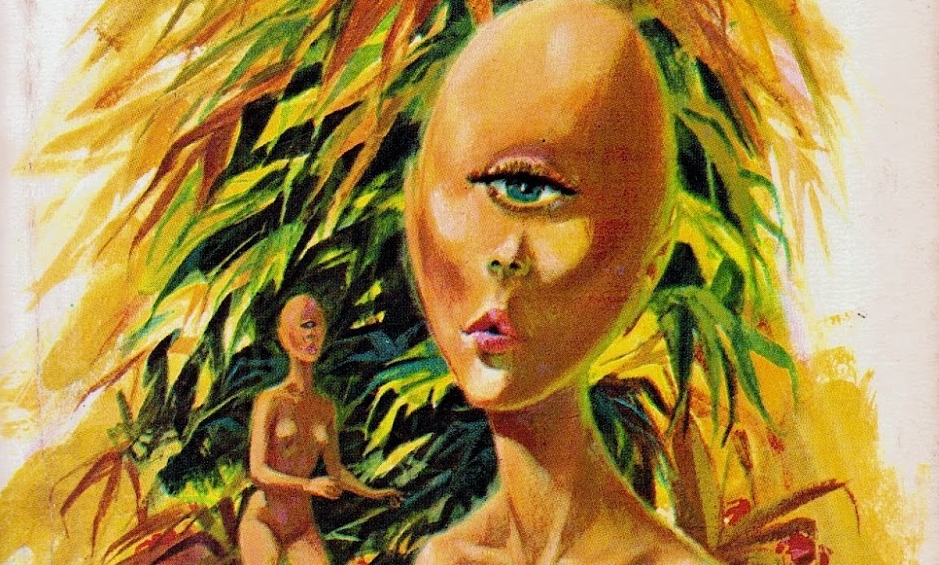
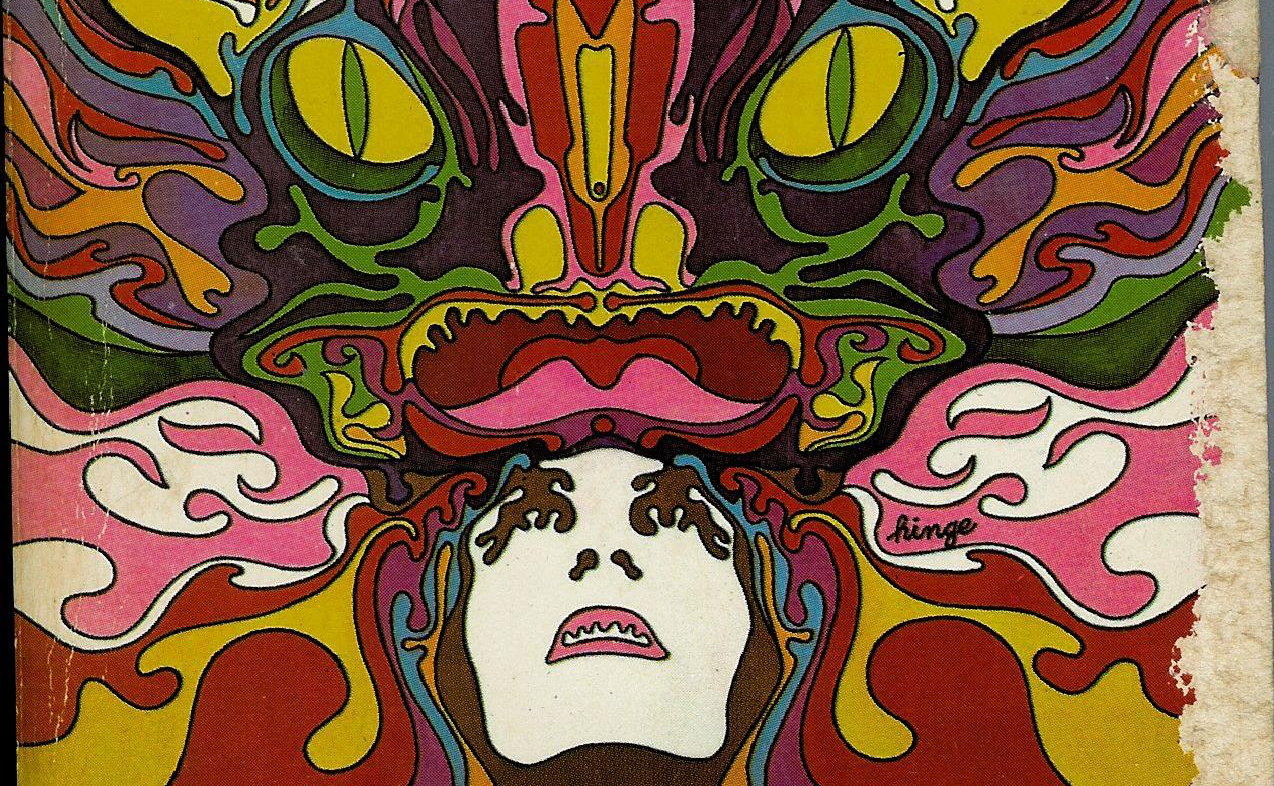

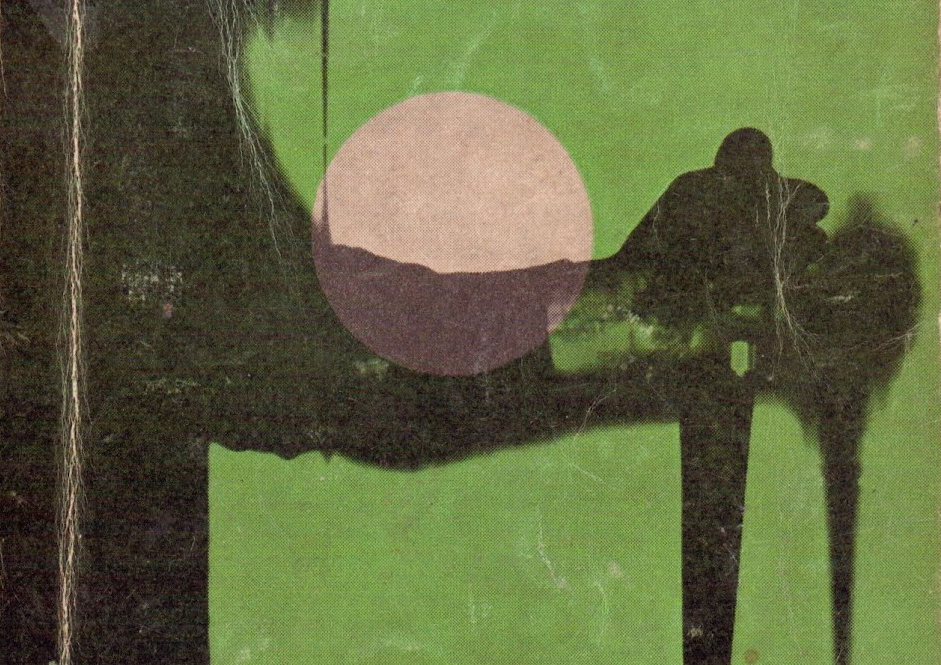
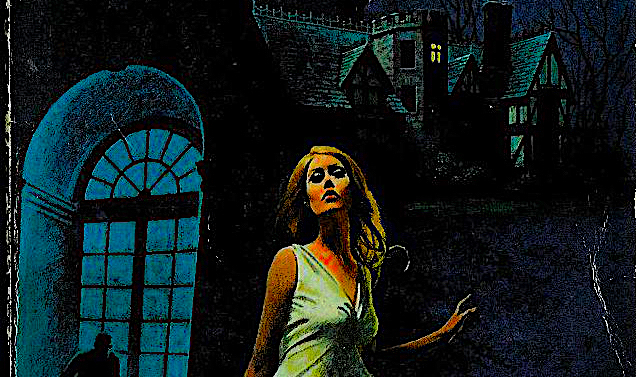
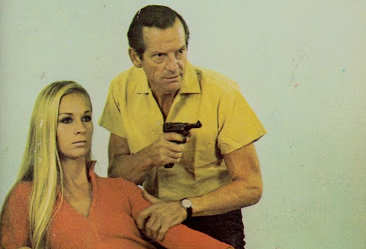
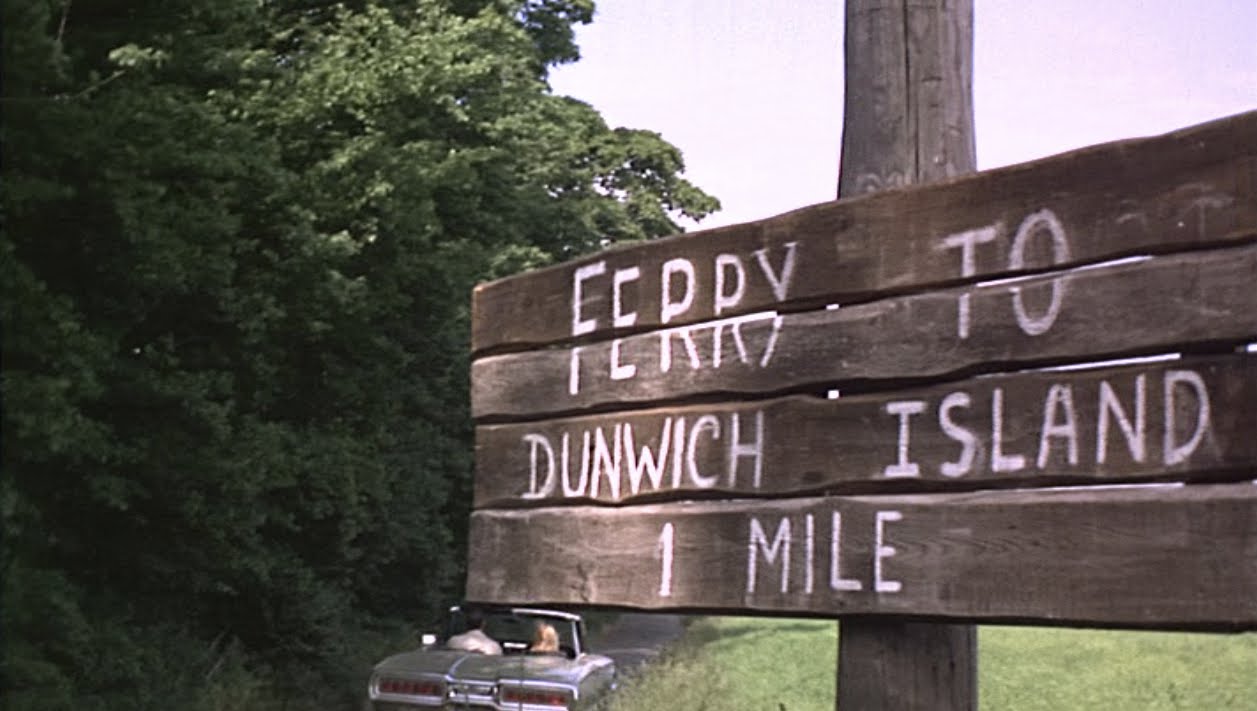
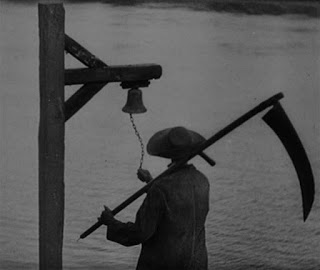
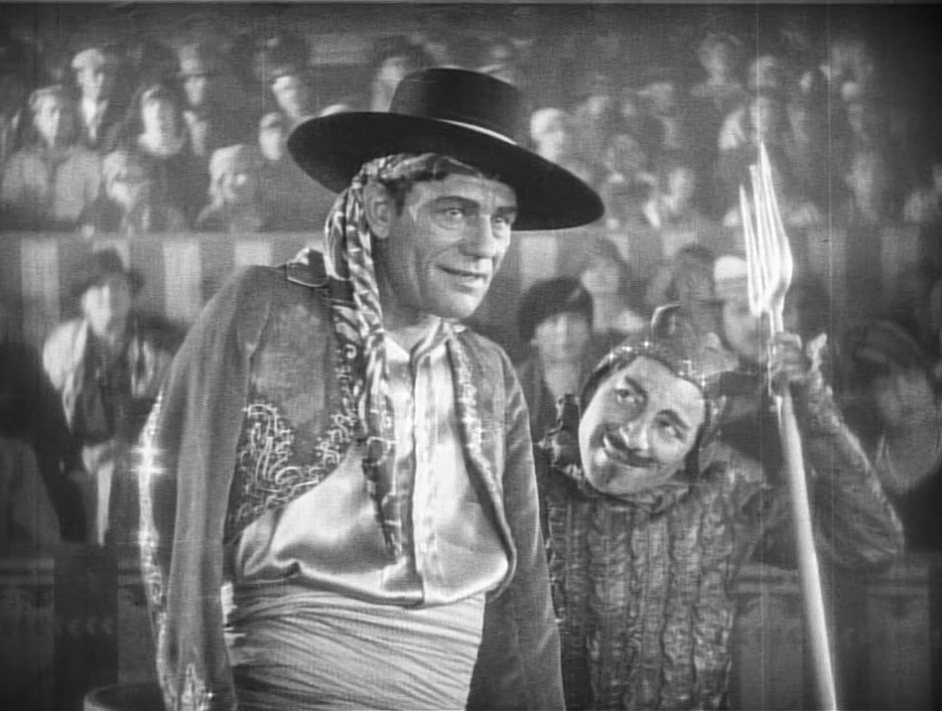
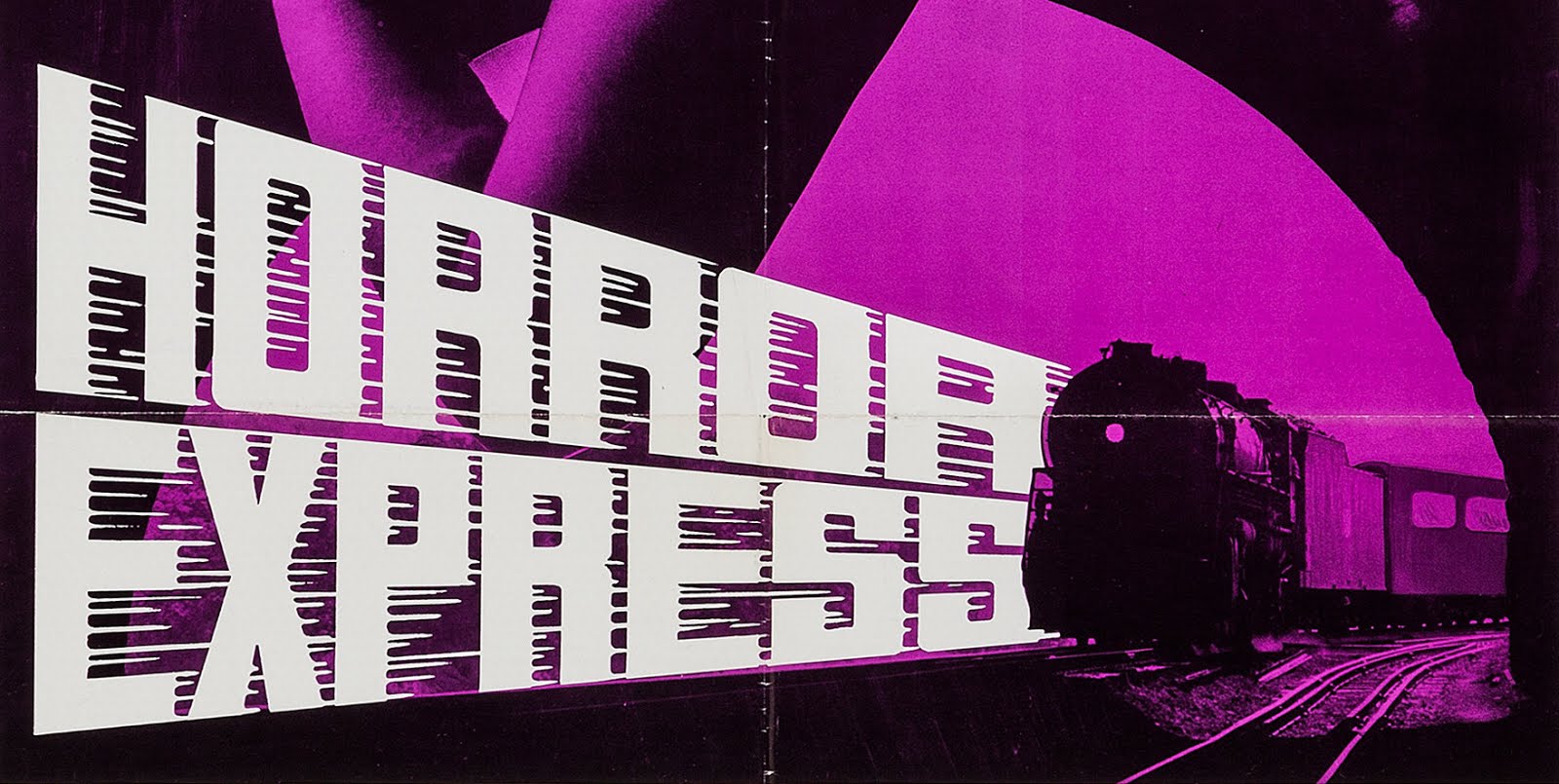
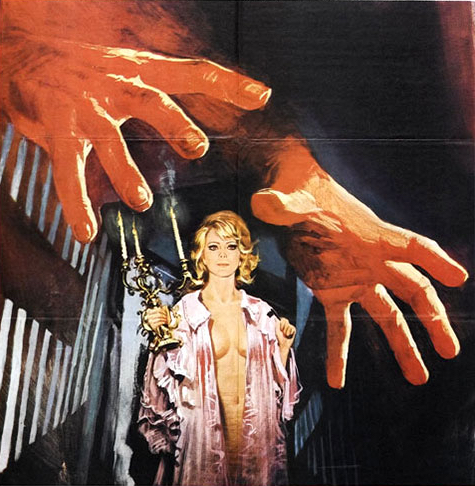

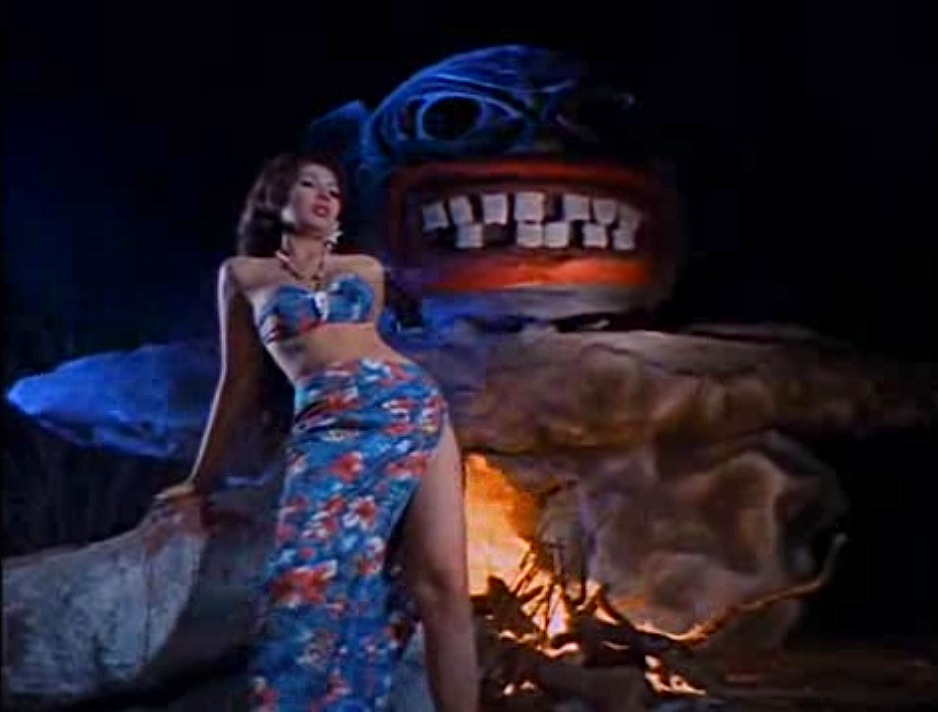




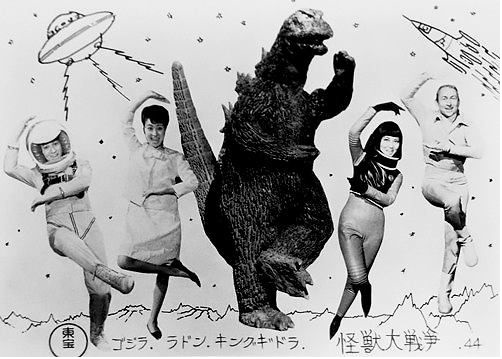
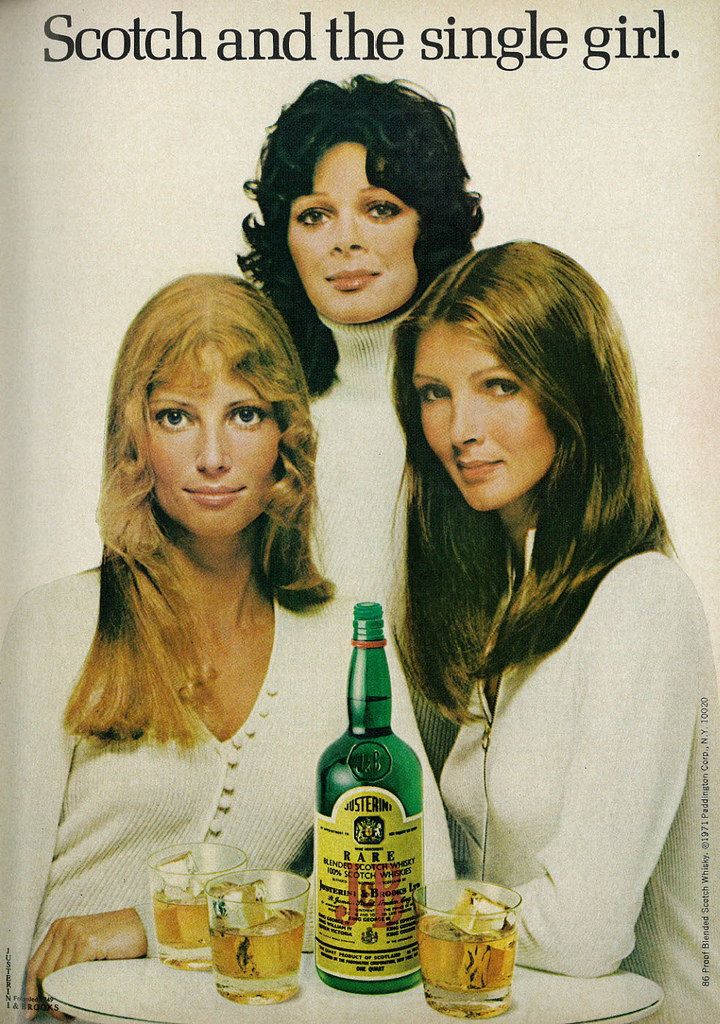

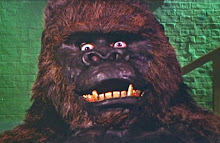
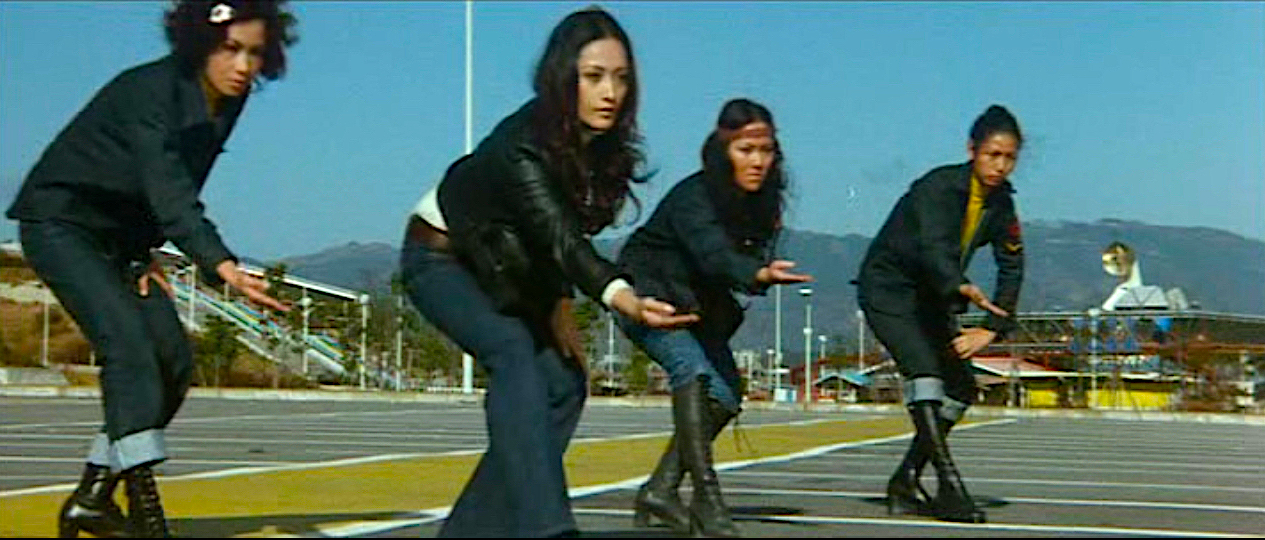


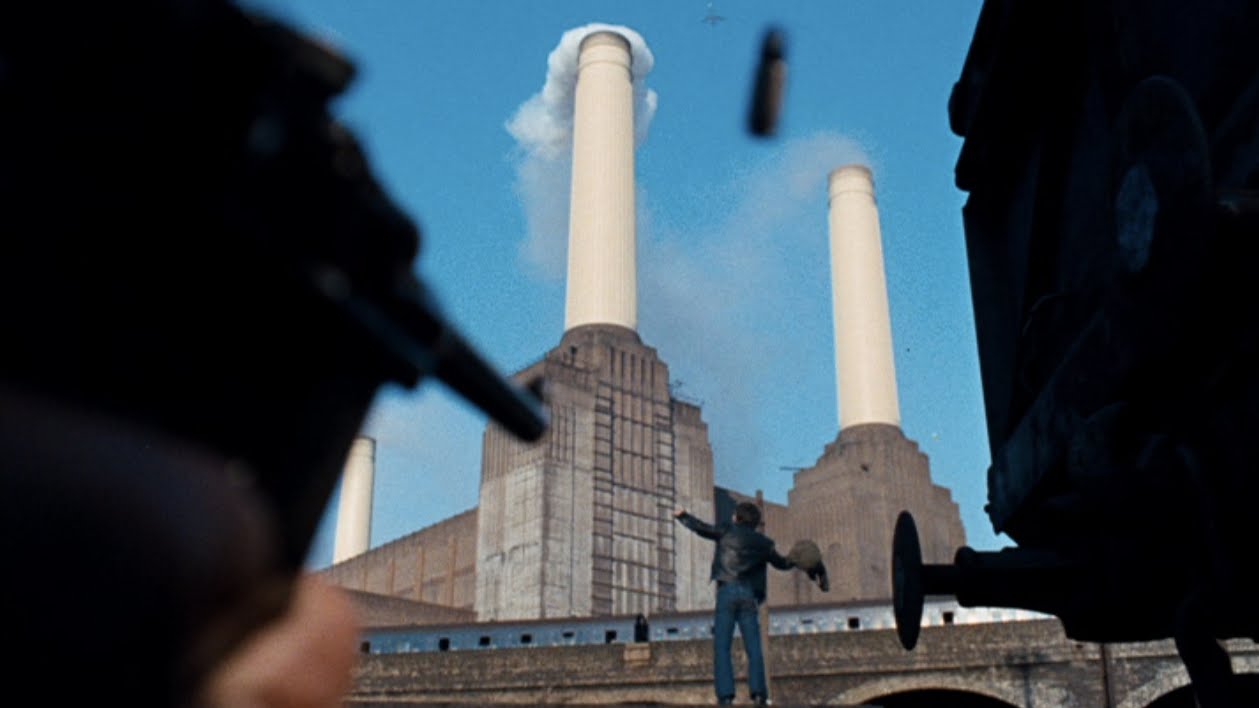
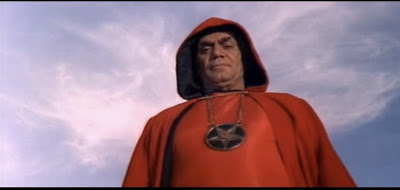








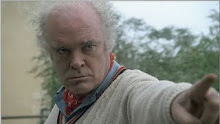
8 comments:
Hi Ben. You somehow got my username wrong, nonetheless I am humbled that you considered my comment to the previous post. The point about Lynch-Films depending on some intense emotional moments that resolve all the narrative entanglement in an non-propositional way is very engaging, but I'm not sure if it is very favourable one.
Hi Patrick - aargh, I'm so sorry for getting your name wrong - how embarrassing! I'm never much good with names, if that's any excuse, and this is what tends to happen when I publish a first draft blog post without proof reading & fact checking - sincere apologies.
And yes, I agree that having to fall back on other people's subjective impressions to justify/defend the 2017 Twin Peaks is not really satisfactory. There is kernel of greatness buried in the series, but I wish it could have dug deeper into its key themes instead of constantly being sidetracked by non-sequiturs and diversions. As with most art that revolves around non-sequiturs and diversions (or collages, cut-ups etc), you're often left with little to go on beyond the visceral reactions & interpretations of individual viewers... which is always kind of a cop-out, although I DO like the notion of the series being used almost like a televisual tarot deck or something... who knows.
Good observations. I'm surprised you didn't go deeper about the philosophical and occult/spiritual themes that become extremely loud in the final two episodes. I see this schism as representative of the Frost/Lynch dynamic and thus the entire show's narrative reading; which, in my opinion, is a fundamental debate on where good & evil come from. Lynch finds a more metaphysical answer while Frost pursues a more external, sociological answer. This season ultimately splits both sides of Twin Peaks into completely different continuities, whereas the original show was (mostly) a balanced world of light and dark, satire and tragedy, surrealism and realism.
And I suspect that Lynch has really prepared for this eventual return throughout all of his post-Peaks career. His films from the 90s on, which you mentioned revolve around shattered psyches and multiple universes, may be seen retroactively as primers and doppelgangers of Twin Peaks.
Thanks for the post Ben, I was wondering what your verdict was. I always find your posts very thought provoking whether or not I've seen those things you discuss. I haven't yet seen this season yet. Between work and studying it is unfortunate I cannot write more elegantly, but I did have some thoughts in response
-As you mention, I do think that his portrayal of mental illness is a weakness. However, the irony from a PC perspective is that a lot of his most avid fans on the blogosphere do seem, uh, at the very least 'deeply idiosyncratic'. Though perhaps one irony there is that I often enjoy some of the weirder and more obsessive analysis of David Lynch to the works themselves- because they are oddly fascinating fractal narratives inspired by a talented (if flawed) film maker. Perhaps there is some kind of Room 237 masterwork to be made about his fandom and their quest to find meaning in his work (as you mention a lot of his work may fail by more objective critical perspectives)?
-But to get back to his portrayals themselves, as you say though we are living in a more sophisticated age. Not only in terms of TV drama but also in non-fiction. Given the viral videos of some of the worst psychopaths, such as Ted Bundy's Latinate-adjective-heavy last interview or Paul Bernardo snidely speaking down to police officers like an odious jock bullying some nerds, the head-clutching, manically laughing 'loonies' in Lynch's work do seem painfully dated
--On that note, I thought that your mention that the latest series was filmed like a sophisticated modern crime drama did seem plausibly hubristic for Lynch. I found the jokes at 80s melodrama was one of the weaker aspects of the first series (especially given that the audience and writers of the melodramas were probably in on the camp pleasures of the stuff it was parodying) and modern crime shows are more sophisticated and better researched, possibly than Lynch's works themselves.
-At risk of sounding horribly pretentious, I suppose my 'big idea' about Lynch is that his muse was 'the airconditioned nightmare' nature of consumerist America. Yet in trying to make fascinating beauty out of banal tastelessness there needs to be some kind of superiority, some kind of either aesthetic or mental perspective that transmutates it. Or else as a muse it could very well be like the Black Lodge in consuming its interloper. I do think that Lynch's work often reached this level in individual scenes in all his work that I've seen- though TBH I can't say I've felt he's produced a single stand alone masterpiece or anything that didn't have some scenes that really bored or annoyed me.
His shortcomings makes me think a bit of his film Dune which he hated- the way that he felt so bruised by working with a successful and complex novel and with a cast including Max Von Sydow and Jurgen Prochnow. I got the impression that Lynch was more interested in the boils on Lord Harkonen's face than with the star of Hour of the Wolf, Through a Glass Darkly etc. Maybe Dune left him facing (or denying) his difficulty in creating adult characters.
How conscious he was of this, I don't know but it does seem to me slightly ironic that having worked with such big name actors the sheer hamminess of what should have been some of the key dramatic scenes in the original TP.
Ultimately I think the paradox is that we are living in a Lynchian world but Lynch is too much a part of it to critique it to its maximum extent. Again with disclaimers of making sweeping statements I would say that the post-WW2 West came to be defined by classical liberalism reduced to absurdity (or blown up to religion?). The horrors of the early 20th c made people sceptical not just of wider political and social schema, but also of the concept of adulthood itself with consumerism and a society based on worshipping youthful inarticulate 'rebellion' acting as a terminal point for human self-actualisation.
I'd say the things I find notably grotesque about the 21st century are the immaturity and the moral cowardice. I thought this does make aspects of the 21st c oddly Lynchian but perhaps in ways Lynch himself is not always conscious of or able to exploit. Especially as his humour would often make a Chucklevision writer cringe and is hardly a political revolutionary.
Guess this goes back to some of his fans, their views and enemies. A lot of his fans are deeply into conspiracy theories (which they often think Lynch is savvy to if you decode him properly) and I've noticed there's a pretty major industry in rebuking conspiracy theorists through 'scepticism' which I find ironically more Lynchian than even the weirdest conspiracies themselves. Like we live in an age of perpetual war, mass surveillance, environmental degradation, corporate hegemony, banana republic 'journalism', yet a lot of people think their time is well spent pointing out the empirical short comings in the works of David Icke? Truly, no head clutching or mad laughter or staring eyes, but establishment 'rationalism' can often be the weirdest thing of all.
Well, sorry if this is a far reaching ramble about thoughts on Lynch and Twin Peaks, but hopefully the odd thing someone might find interesting.
Thanks for your comment Quint - interesting thoughts. I'd be interested to hear more about your understanding of the good & evil thing.
I don't know much about the working relationship between Lynch and Frost (I'd be fascinated to get an insight into it), but I'd suspect it's not quite so simple as Frost providing a rational/mundane yin to Lynch's supernatural/metaphysical yang.
As I've discussed in my posts, I believe that it is the interplay between these two levels of existence the gives 'Twin Peaks' (and indeed Lynch's trilogy of LA films) their power - both are equally important, and must be understood similtaneously.
After all, if you take The Black Lodge and remove the subjective emotional narratives of the characters from it, it's not much more than a fairly standard science fiction/parallel world kind of concept. And likewise, if you take the drama taking place in Twin Peaks and remove The Lodge, it's just soap opera. Layer both on top of each other however, and something very powerful, impossible to fully define or compartmentalise, is born.
The Frost/Lynch schism I mentioned is mostly built up from stories in a Lynch book I read, "Passion of David Lynch" I think. It totally explains The Return's finale of splitting the universe into two continuities. You're on the right track. Twin Peaks, the TV town, is a dream world within the final episode. Notice the soap opera within Twin Peaks is called "Invitation to Love" which is a parody of "Imitation of Life". The seeds were planted then that their world was only a dream (and primed further with his LA trilogy).
The clearest evidence of Frost and Lynch differing interpretations are the end of Season 2 and Fire Walk. Frost's episodes treat BOB as a literal demon and the town as a campy reality, whereas Lynch sees it all as a nightmare psychosis. My reading of everything (which is almost impossible to prove) is that Cooper was always BOB and Laura is remembering her own death from the Black Lodge. Lost Highway, Mulholland Drive and especially Inland Empire suggest this. It's hard to not take these films as commentary on the orchestrated 25 year suspense between seasons.
Sorry to ramble on. Final bit: the real genius of the series is how it appears so abstract to become meaningless, but this is a guise to simulate the seemingly chaotic order of reality. Lynch presents the reality of Twin Peaks as a dream within a dream and leaves us asking "Who is the dreamer?" Fans can argue that it's Laura or Cooper and get two totally different interpretations of the story (mirroring the end of Season 2 & FWWM). But the cosmic joke is that the dreamer is "You". I see this as Lynch's final word on existential horror. God isn't dreaming us. We are dreaming God. This is why Laura screams and things turn to black. The Christian parody apocalypse of the penultimate episode is deconstructed and we are left with the nihilist realism that was always beneath the narrative. This ties into the Taoism that weaves it's way through the show and ultimately destroys BOB.
Post a Comment